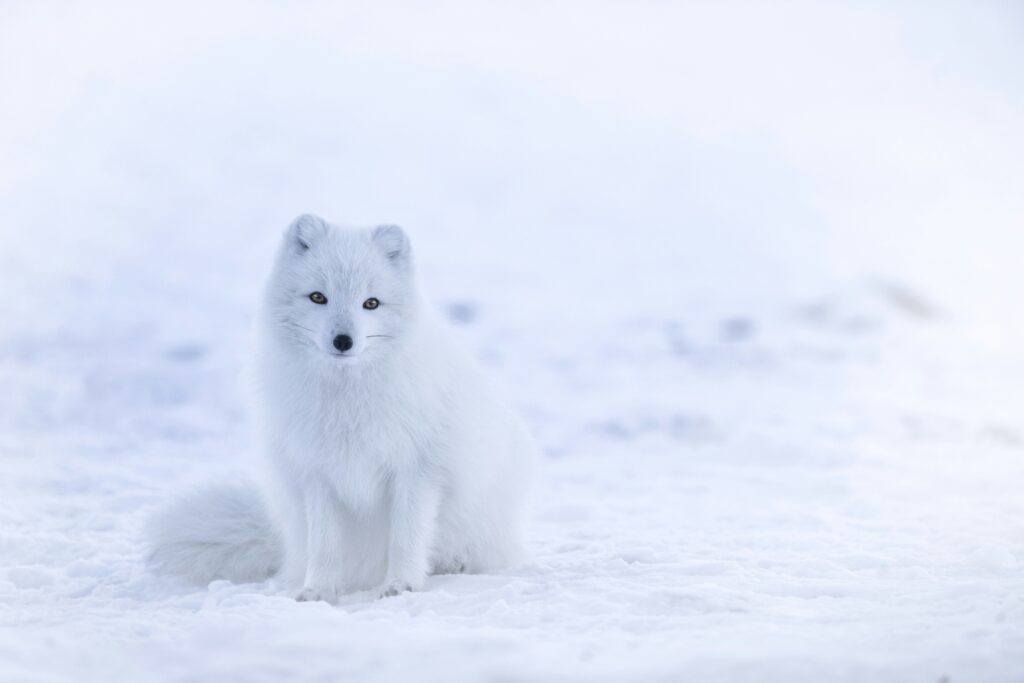The Arctic Faces the Climate Truth
At ATLAS25 in Helsinki, the world’s climate future felt both fragile and fiercely contested.
In Finland, where Arctic foxes endure –70°C winters but now face extinction as snow cover dwindles, and where Saimaa ringed seals lose their icy birthing grounds to rising temperatures, the message hit close to home. Just outside the conference halls, the Finnish Museum of Natural History reminds visitors: nature adapts, until it can’t. So do societies. And right now, the pace of change is outstripping our willingness to face it.
That tension sat at the heart of ATLAS25, convened by Operaatio Arktis. Leaders, scientists, and activists gathered not to admire the science already done, but to confront the political and moral vacuum around the world’s most dangerous climate thresholds.
The comfort narrative is dead
The Global Tipping Points Report 2025 was direct: global warming will soon exceed 1.5°C, warm-water coral reefs are crossing their thermal tipping point, and polar ice sheets are approaching thresholds that could commit the world to several metres of irreversible sea-level rise.
There were no comforting warnings and no diplomatic polishing. Every fraction of a degree counts, and every year lost deepens risk. The report could not have been clearer: global emissions must halve by 2030 and reach net-zero by 2050 to minimise overshoot and preserve the Earth systems that stabilise our world.
Overshooting 1.5°C (even 2°C) is not a hypothetical anymore, it is the path we are on.

Physics don’t negotiate
American climatologist, Dr. James Hansen spoke to us with the same clarity that shook Congress in 1988. In our conversation afterward, he didn’t hesitate, “The planet is out of energy balance… we will hit 2°C within the next couple of decades… leaders insisting 1.5°C is still possible are not being honest.” His message wasn’t dramatic; it was factual, physics won’t respond to wishes or political timelines. It may sound stark, but accepting that isn’t defeat. It’s the beginning of real action.

Security is stability, say Nordic leaders
Panels centred on a stark question: are our institutions prepared for nonlinear risk? Most aren’t. The report warns that if we wait for certainty that tipping points have been crossed before we act, it will be too late. Nordic policymakers stressed a new security doctrine, treating climate tipping points as existential threats to food systems, infrastructure, and democracy.
The AMOC (Atlantic Meridional Overturning Circulation), isn’t an abstract acronym here, it’s the ocean conveyor that keeps European winters liveable. As was pointed out during the discussion, the age of symbolic climate politics is over. What’s needed now is anticipatory governance, not post-crisis cleanup. If you still believe climate risk is about how summers, think again. It is about social cohesion, borders, finance and survival.

Warnings from the Finnish forest line
At the museum across town, it was like 10 minutes by walk, the Arctic fox display reads: “The Arctic fox can withstand frost as severe as –70°C, but its survival depends on ice and snow.” A species evolved for extremes now faces a threat not from cold, but from its absence, a metaphor for institutions built for gradual change, not cascading shocks.
In the museum, it explained how Finland’s nature has been shaped by ice for millennia, and how, as the climate warms, habitats shift and species are pushed northward in search of cold they can no longer rely on. Even landscapes we once assumed eternal are beginning to move.
Hope demands grown-Up choices
ATLAS25 didn’t wallow, like mammoths, in doom. Positive tipping points, rapid shifts in technology, finance, and social norms, were threaded through sessions. The report highlights how solar power and electric vehicles have already entered self-reinforcing adoption curves, and how targeted policy can “trigger cascading positive change”.
But optimism here wasn’t the mood — it was the method. Operaatio Arktis framed it as a shift from anxiety to agency. Hansen stressed cooperation — even nuclear partnerships, though that’s debatable — across geopolitical divides. Meanwhile, researchers highlighted “super-leverage points” and the importance of participatory governance.
Lessons from the Finnish capital
Standing between conference halls and museum glass, one truth emerged: humanity has crossed the line where comforting stories are a threat. The world keeps changing, Finland’s terrain itself carved by a five-degree warming event thousands of years ago, but never at this speed, never driven by us.
We have entered the era where climate politics must grow up, because the physics already has.
ATLAS25 wasn’t a warning. It was a briefing. The Arctic fox adapts until it can’t; democracies do too. We can choose to tip toward collapse, or toward action powerful enough to match the crisis. The ice doesn’t negotiate. Neither should we.